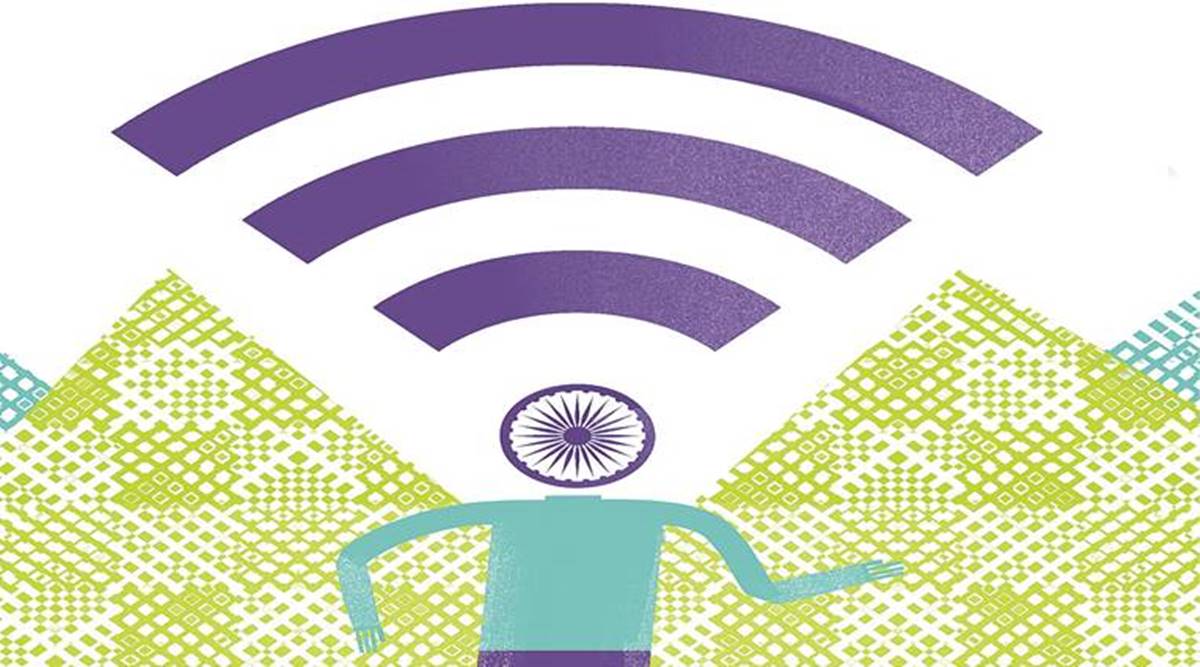 In an online environment where the underlying content is manipulated, reproduced, exchanged and circulated simultaneously and where everyone is creating, sharing and influencing points of view, regulation can never be a solution. (Illustration: C R Sasikumar)
In an online environment where the underlying content is manipulated, reproduced, exchanged and circulated simultaneously and where everyone is creating, sharing and influencing points of view, regulation can never be a solution. (Illustration: C R Sasikumar)The Digital India programme was launched in 2015 to ensure access and inclusion to transform India into a digitally literate society. Recently, the Ministry of Information and Broadcasting confirmed that it is going to regulate digital/online media and “films and audio-visual programs made available by online content providers”. According to Access Now’s “Keep it on Report, 2019”, India has more internet shutdowns than any other country — 121 were reported from across the country in 2019, often citing violence (law and order) and social unrest as the cause. Given that internet shutdowns are pervasive in India, regulating the already stressed new media will create walled gardens. Such a digital governance regime is out of sync with ground realities.
According to the Reuters Institute’s Digital News Report 2020, “Access to news continues to become more distributed. Across all countries, just over a quarter (28 per cent) prefer to start their news journeys over a website or app. However, Generation Z (Gen-Z also known as I-Generation) prefers to access news via social media.” The media is transitioning from newspapers to an app-based, mobile-first industry. The Indian Media and Entertainment sector reached Rs 1.82 trillion in 2019 and the digital subscription revenues more than doubled from 2018, according to a FICCI-KPMG Report (2020). However the pandemic has shut down several publications, job creation is at an all-time low and revenue streams have dwindled. The new regulation can prove to be a death knell for entrepreneurship in the sector.
In an online environment where the underlying content is manipulated, reproduced, exchanged and circulated simultaneously and where everyone is creating, sharing and influencing points of view, regulation can never be a solution. Simply put, keeping track of the unimaginable volume of data is practically impossible. James Michael Cole, former American deputy attorney general, argued, “If you’re looking for the needle in the haystack, you have to have the entire haystack to look through.” With the sheer number of users and the data they generate, a fair and comprehensive database is itself impossible for any one player, even the government, to access.
Under this new framework, the advisories or strictures issued by the government can lead to a Balkanisation of the internet. The content of certain websites and apps, especially those not based in India, may be blocked or censored. How will the government bracket the complex content on digital media? There is a legitimate fear of over-surveillance on digital platforms. When the government is watching your every action, it would raise a “great firewall”, like the one in China. Another concern is that when it comes to government actions, particularly in terms of censorship, the same rules do not apply. This has been evident with internet shutdowns and restrictions, a disproportionate number of which have been imposed in Jammu and Kashmir.
The plurality of the digital/online environment must be valued because it allows us to access everything openly and leaves the power of decision-making with the consumer. Let professional principles and ethical codes guide the industry. Sub-standard content will be rejected in this highly competitive ecosystem. Regulating an already stressed sector will hinder its innovation and growth. That cannot be conducive to Digital India.
(Singh is an independent researcher and writer)